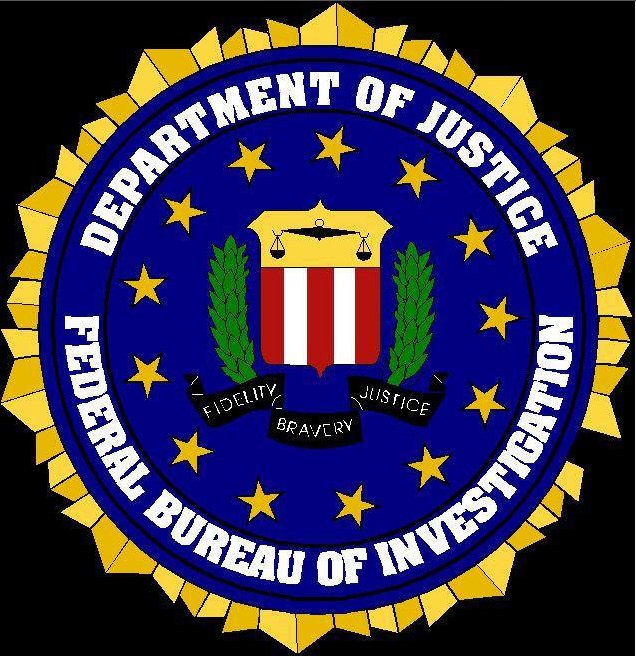( January has been declared National Slavery and Human Trafficking Prevention Month by the U.S. government.
Human trafficking can take many forms, from forced servitude to sexual exploitation of children, and the FBI is fighting these crimes on every front.)
Published by FBI
(Jan. 27, 2015)
The young Ukrainian men and women—many of them out of work and with few prospects—were promised good-paying jobs in the United States. But instead of living the American dream, they were thrust into a nightmare of violence, threats, and forced servitude.
For years, five brothers who ran a human trafficking organization victimized dozens of unwitting Ukrainians, underscoring the reality that modern-day slavery exists in the United States and around the world—and requires a strong response by governments and law enforcement.
Although Ukrainian trafficking victims were told they would gain legal entry in the U.S., they were routinely smuggled through Mexico using temporary tourist visas.
The Botsvynyuk brothers created many victims. Based on trial transcripts and other public records, from approximately 2000 to 2007, the Ukrainians recruited their young countrymen to work in the U.S. in their businesses cleaning large retail stores at night.
They promised good jobs, usually with salaries of $500 per month. The victims were told that room and board would be provided as well as all travel expenses. They were also told that they could earn $10,000 after two or three years of working.
Many of those who signed up for these jobs were uneducated and desperate for work.
“They believed it would be a much better deal than what they had in the Ukraine,” said Special Agent Ned Conway, who has been investigating this case out of our Philadelphia Division for nearly a decade.
Instead of entering the U.S. legally, many of the victims were smuggled through Mexico and ended up working 10- to 12-hour days, seven days a week.
They lived up to five people in one room, slept on dirty mattresses on the floor, and most were never compensated—on the contrary, they were told they had to work for the brothers until their debts, ranging from $10,000 to $50,000, were paid.
Worse, the Botsvynyuks used physical force and sexual assault to keep victims enslaved. They also threatened violence to victims’ families still in the Ukraine.
“Some women were raped on their arrival in the U.S., and many of the men were beaten,” Conway said. “There was an element of fear right from the start.”
Most of the victims didn’t speak English and felt they had nowhere to turn. And they were afraid for their families back home.
Over time, though, some victims were detained at the border trying to gain entrance into the country, and other victims came forward.
In 2010, all five brothers were indicted for human trafficking—specifically for conspiracy to violate the Racketeer Influenced and Corrupt Organizations (RICO) Act. Stepan and Omelyan Botsvynyuk were convicted in 2011, and in 2012, Stepan was sentenced to 20 years in prison. Omelyan received a life sentence.
Two other brothers, Mykhaylo and Yaroslav, fled to Canada. They were extradited in 2013, and their trial is set to begin this week in a Philadelphia federal court. The last brother, Dmytro Botsvynyuk, remains a fugitive in the Ukraine.
The damage caused by the Botsvynyuk brothers to perhaps 70 or more Ukrainian victims is staggering to contemplate. “The sexual assaults on the women were brutal,” Conway said, “and some of the men were psychologically broken. What happened to these innocent victims is a real tragedy. For some, their lives were destroyed.”
But there were a few bright spots to the story as well, Conway added. Some victims found the courage to testify against their abusers. And as victims of human trafficking, they also qualify for the right to apply for visas and stay in the U.S., which had been their dream all along.
“Without the brave cooperation of some of the victims,” Conway said, “it would have been more difficult to shut down the Botsvynyuks’ operation.”
Efforts to Stop Human Trafficking
The FBI has a range of resources to counter human trafficking, from agents who investigate child sexual exploitation cases to specialists from our Office for Victim Assistance who help victims get their lives back on track.
Worse, the Botsvynyuks used physical force and sexual assault to keep victims enslaved. They also threatened violence to victims’ families still in the Ukraine.
“Some women were raped on their arrival in the U.S., and many of the men were beaten,” Conway said. “There was an element of fear right from the start.” Most of the victims didn’t speak English and felt they had nowhere to turn. And they were afraid for their families back home.
Over time, though, some victims were detained at the border trying to gain entrance into the country, and other victims came forward.
In 2010, all five brothers were indicted for human trafficking—specifically for conspiracy to violate the Racketeer Influenced and Corrupt Organizations (RICO) Act.
Stepan and Omelyan Botsvynyuk were convicted in 2011, and in 2012, Stepan was sentenced to 20 years in prison. Omelyan received a life sentence.
Two other brothers, Mykhaylo and Yaroslav, fled to Canada.
They were extradited in 2013, and their trial is set to begin this week in a Philadelphia federal court. The last brother, Dmytro Botsvynyuk, remains a fugitive in the Ukraine.
The damage caused by the Botsvynyuk brothers to perhaps 70 or more Ukrainian victims is staggering to contemplate.
“The sexual assaults on the women were brutal,” Conway said, “and some of the men were psychologically broken. What happened to these innocent victims is a real tragedy. For some, their lives were destroyed.”
But there were a few bright spots to the story as well, Conway added.
Some victims found the courage to testify against their abusers. And as victims of human trafficking, they also qualify for the right to apply for visas and stay in the U.S., which had been their dream all along.
“Without the brave cooperation of some of the victims,” Conway said, “it would have been more difficult to shut down the Botsvynyuks’ operation.”


